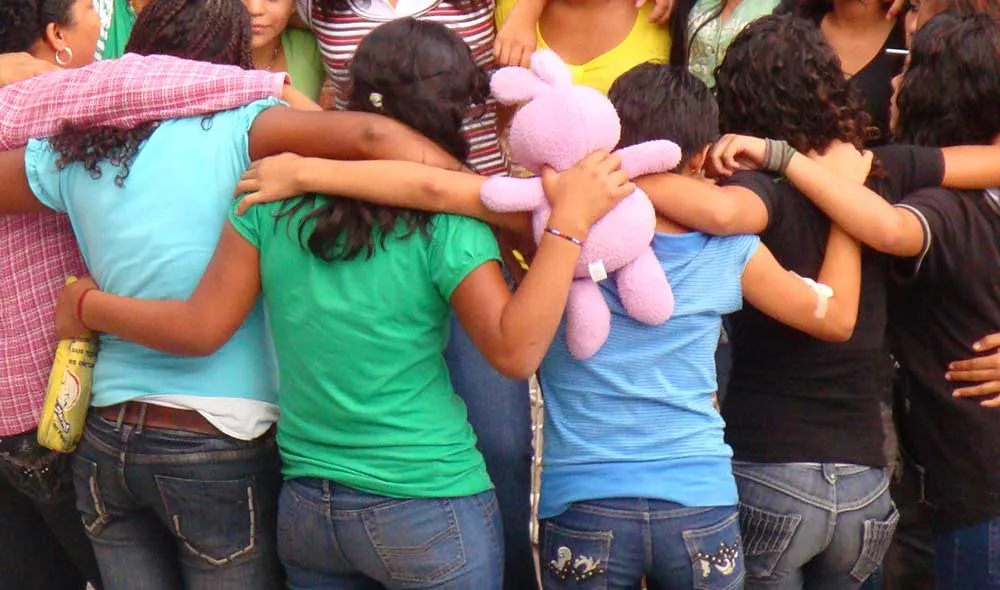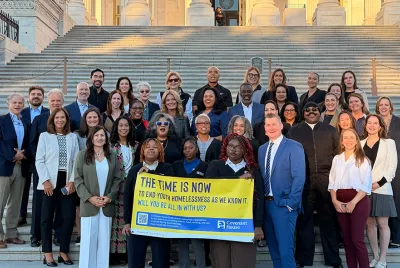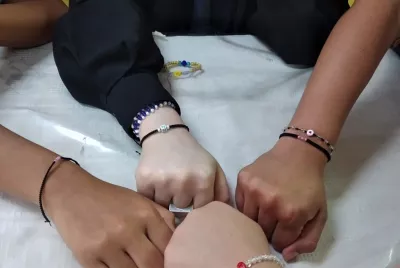Pain, Beauty, Opportunity: Supporting Trafficking Survivors in Latin America

Since joining Covenant House three months ago to lead our Latin America programs, Carolyn Barker-Villena has traveled to each of our sites in the region. There, she says, in Guatemala, Honduras, and Mexico, the resilience of our children and teens vies with the trauma and harsh experiences they’ve endured, especially experiences of human trafficking.
During a visit to Hogar Querubines, or Cherubim House, a Covenant House Honduras program, Carolyn says, “I was surprised and amazed to see the girls there, all of them trafficking and abuse survivors. They were laughing, singing, and playing with their puppy.”
But, at the same time, she notes, “Our staff, who are trained and experienced in trauma-informed care, are caring for girls who are coping with severe trauma, some of whom are self-harming. Mental health services are a critical component of the support Covenant House provides to girls and boys in Latin America to help them overcome their trauma and build on their own resilience.”
It’s impossible to overestimate the psychological and emotional impact that sex, labor, and other forms of human trafficking and abuse have on a person at such a young age. The residents of our Latin America programs are the youngest across our entire federation at just 12 to 18 years old, with some even younger.
Despite their tender age, 51% of these children and teens are survivors of human trafficking. In our Guatemala programs alone, 65% of our girls and boys are survivors of sex trafficking. In Mexico, 43% are survivors of labor trafficking.
“Our houses in Latin America provide a warm, supportive environment,” Carolyn says. “Our youth are in a place where they can be kids, where they have the safety to do that. That’s Covenant House’s relentless care and support, which are so critical to addressing trauma.”
That relentless care includes protection, medical and mental health care, schooling, education about their rights, prosecution of traffickers, and, where safe and appropriate, family reintegration. Our care even extends beyond each individual location, as our national directors and staff members reach across borders to support one another and share best practices.
Our staff in Latin America are also engaged in outreach to prevent exploitation and trafficking in the first place. “In all three countries, we’re focused on both the youth in our care and on expanding prevention. There’s a lot of potential to learn more and change cultural norms and acceptance of abuse and exploitation in the region,” Carolyn says.
Advocacy is another key focus area, she notes. Carolyn recently spent a day on Capitol Hill in Washington, D.C., meeting with U.S. lawmakers and their staffs and offering them a critical regional perspective on trafficking and migration based on the experiences of our youth. Lori Piccolo, Covenant House vice president of institutional funding, attended the recent unveiling of the U.S. State Department’s annual report on trafficking in persons.
“As a U.S.-based organization, we have to be part of the conversation about how trafficking, migration, and gang violence are impacting the region. Gangs are driving a lot of the sex and labor trafficking, which in turn are driving a lot of migration. It’s all tied together,” Carolyn says.
“We have an incredible opportunity to support our youth so they can move beyond their experiences of trafficking, abuse, and exploitation, and thrive,” Carolyn says. “There’s so much pain, so much beauty, and so much opportunity for Covenant House to have a long-lasting impact in Latin America.”
You might also like...
All news & insightsShelter Is Only the Beginning
From crisis to care: Find out what it's like when a young person enters our doors.


